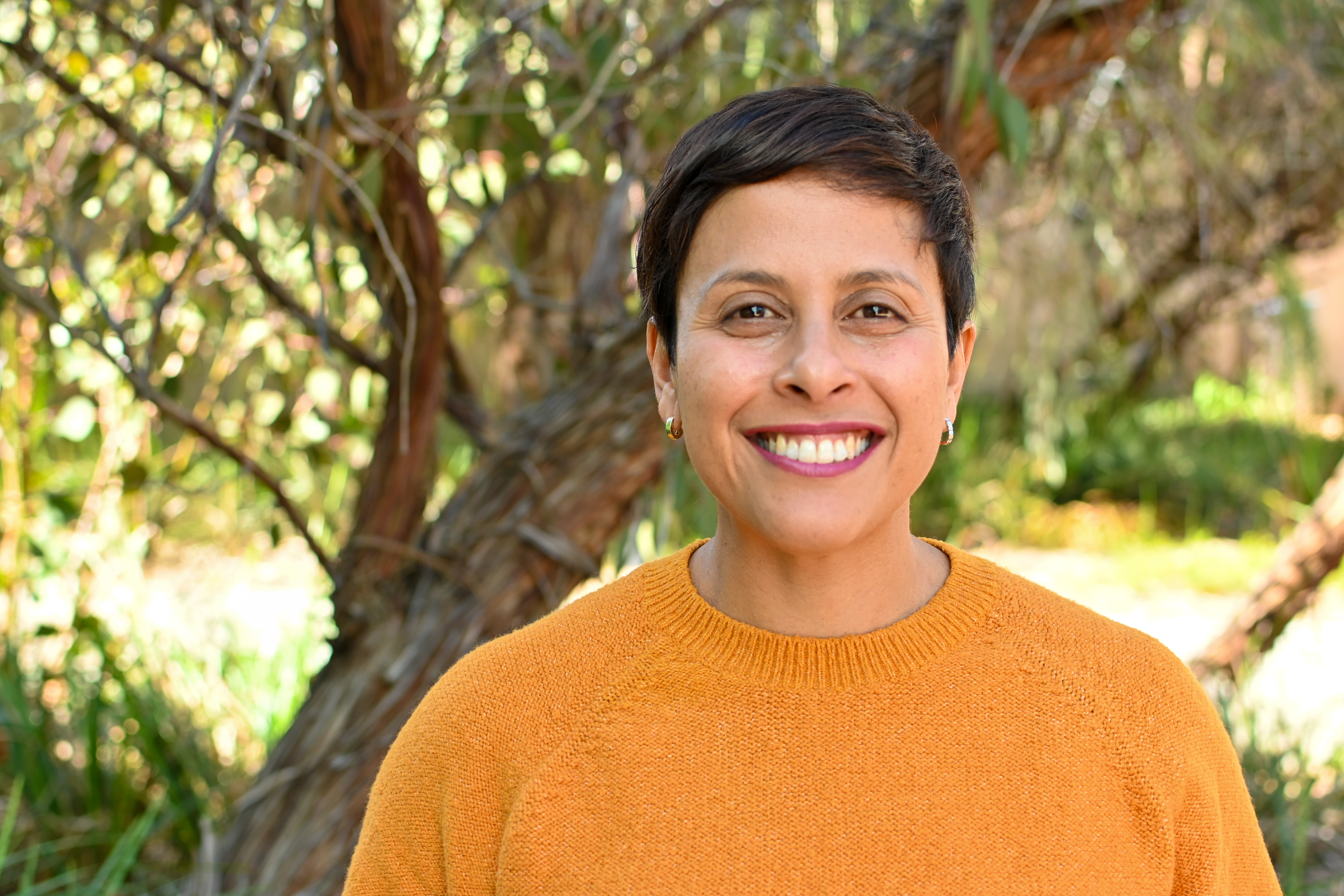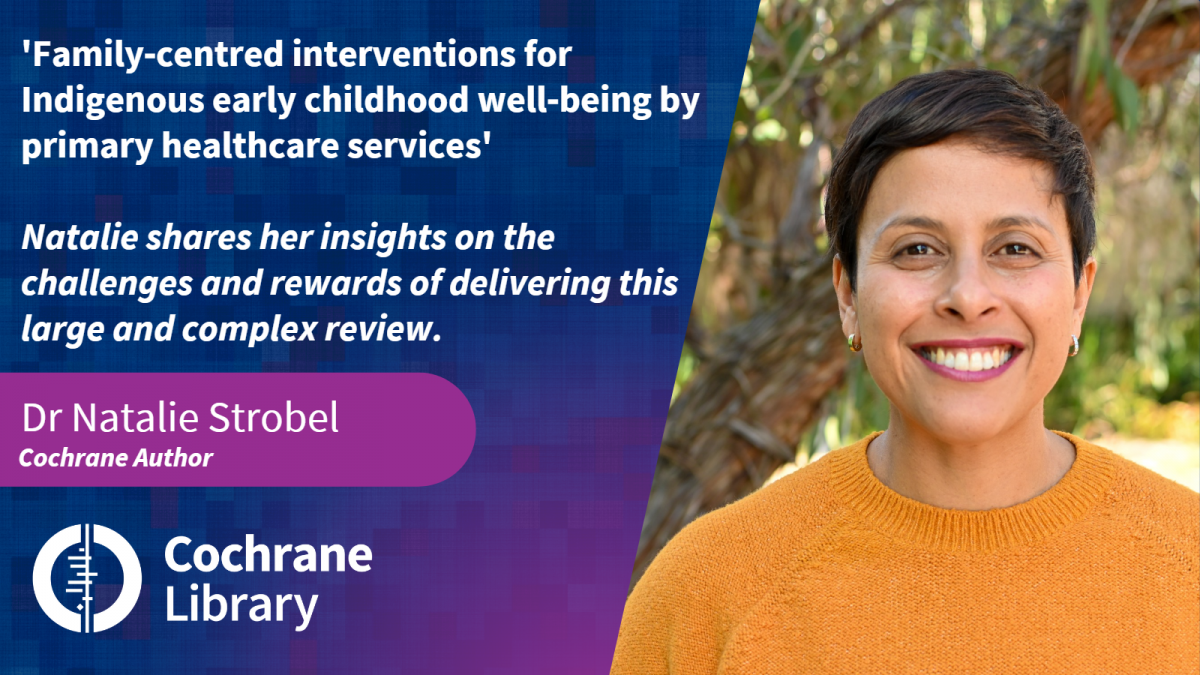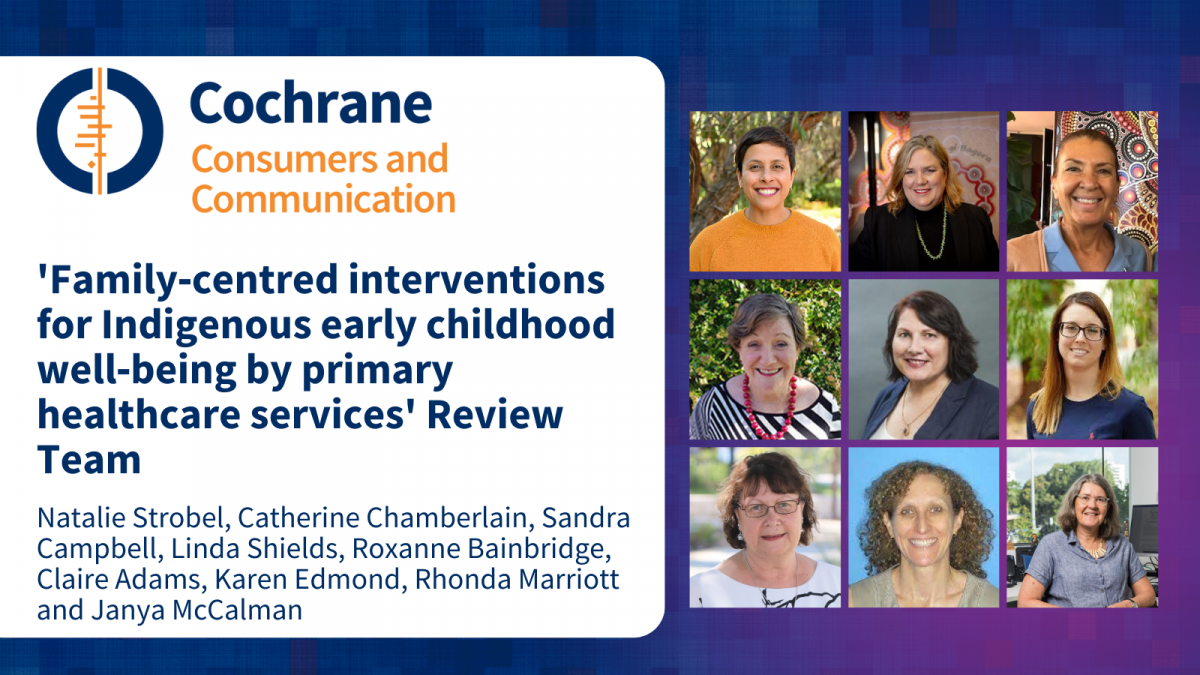
Family-centred care is a way of providing care that focuses on the needs of children while providing planned care around the whole family unit. A new Cochrane review published recently found there was a small improvement in the overall health and well-being of Indigenous children and their families when they participated in family-centred care programmes at a primary healthcare service.
‘Family centred-care is not new,’ says lead author Dr Natalie Strobel, Senior Research Fellow at Edith Cowan University’s Centre for Improving Health Services for Aboriginal and Torres Strait Islander Children and Families. ‘Aboriginal Medical Services have been doing this for years. For example, they don’t just immunise babies, they talk to mums, aunts, uncles, grandparents and everybody that’s part of that family unit – trying to ensure that everybody's getting care. That’s both health and social care, so it might be making sure there’s appropriate housing, referrals to services that they needed or for other types of support.’

‘We know that primary healthcare, particularly Indigenous-led services, are well placed to deliver services that reflect the needs of Indigenous children and their families. Of our author team of nine, four are Aboriginal and have worked in health services as nurses and midwives for a long time. Families want primary healthcare services that both support them and recognise Indigenous ways of knowing and doing business. This can be delivered through environmental, communication, educational, counselling, and family support approaches.’
A key finding of this new review was that family-centred care delivered by primary healthcare services may improve the overall health and well-being of children and their families, however, due to a range of factors, the evidence was rated as very low certainty. There was also evidence to suggest that families who participated in family-centred care increased their parenting knowledge and awareness to a small degree. However, for all other outcomes it was unclear whether family-centred care improves specific child health and well-being outcomes. Ultimately more high quality trials are needed to generate evidence to determine whether family-centred care improves the health and well-being of Indigenous children.

‘We consider family-centred care to be really promising, but we’re not confident in the evidence for a range of reasons, which are quite complex,’ Natalie says. ‘For example, people in the studies were aware of what intervention they were getting, many people did not come back to report their results, and not all the studies reported the information we were interested in. Also, some of the issues around low quality of evidence are really hard for communities that are doing this type of work to get around.’
‘For instance, in the United States you're delivering the intervention on a reservation and there's not a huge number of people to do this work. Often the person who delivers the intervention also collects the data. We know that's got a significant level of bias involved in it, but it's also very pragmatic, that's what happens and how it has to work because there's not enough people to complete the project. This highlights the challenges of conducting high quality studies, and underscores the need to build capacity and support people in communities.’
‘I think with the advent of this type of research, it will give people an idea of what's going on in the field so that they know where potentially they could identify and collect better evidence to add to this emerging evidence base. Ultimately it is quite a tricky space, and realistically when you are trying to do things that are good for your community, you have to make allowances and be pragmatic about how research is delivered.’
‘Overall, this was a huge and complex review that was really challenging to deliver but we’re so pleased we did,’ Natalie says. ‘I really have to hand it to the team though. It was their sheer persistence that delivered this review, and the reward now for us is having this really high quality piece of work that people from health services can use to show how effective their programs are. We wanted to support local services to advocate for themselves and now they can use this information as they need – either to show where they might need to make changes or to demonstrate that what they're doing is effective and benefits children, families and communities. They are really making a difference.’
Strobel NA, Chamberlain C, Campbell SK, Shields L, Bainbridge RG, Adams C, Edmond KM, Marriott R, McCalman J. Family‐centred interventions for Indigenous early childhood well‐being by primary healthcare services. Cochrane Database of Systematic Reviews 2022, Issue 12. Art. No.: CD012463. DOI: 10.1002/14651858.CD012463.pub2.
Written by Shauna Hurley, Cochrane Australia

